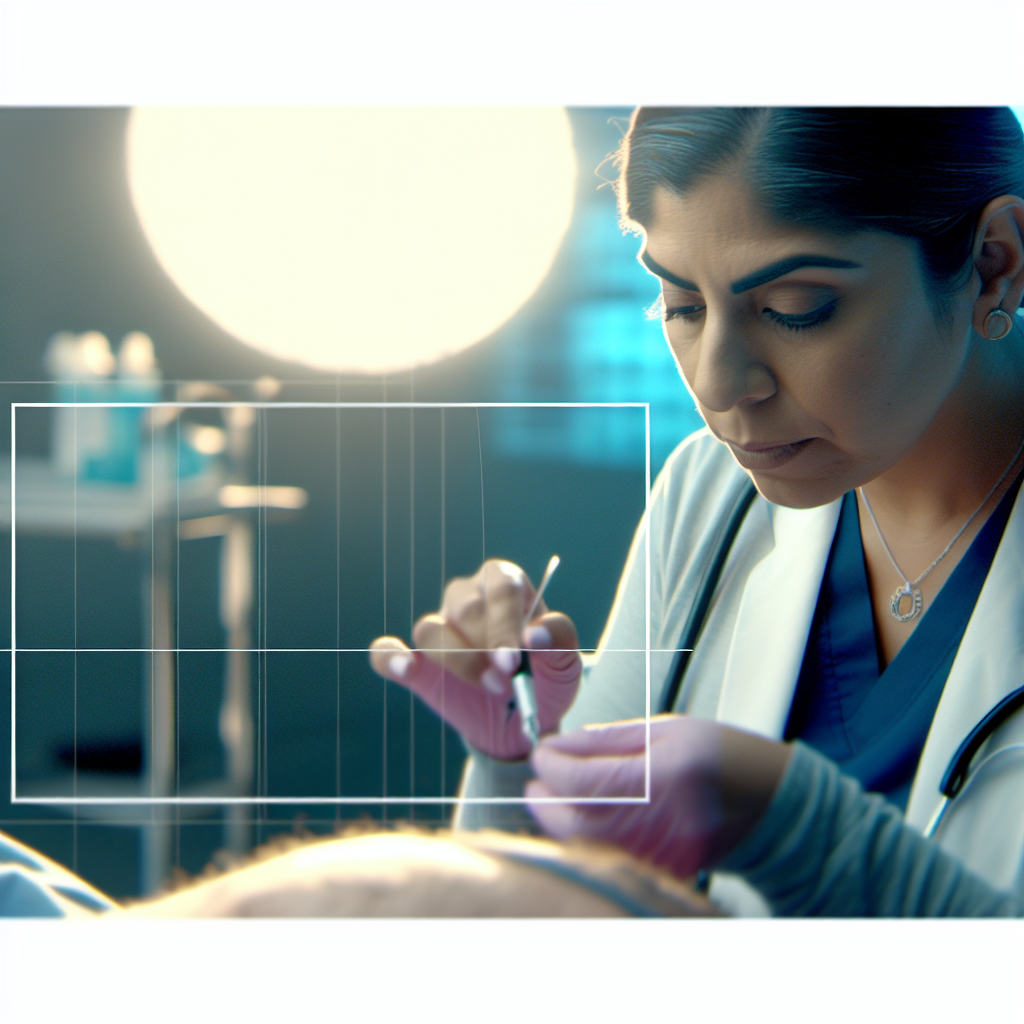The Role of a Registered Nurse: A Comprehensive Job Description
The role of a registered nurse is a vital one in the healthcare industry. Registered nurses, also known as RNs, play a crucial role in providing direct patient care and ensuring the overall well-being of individuals in various healthcare settings. This comprehensive job description will outline the responsibilities, qualifications, and skills required to excel in this profession.
Registered nurses are responsible for assessing, planning, implementing, and evaluating patient care. They work closely with physicians and other healthcare professionals to develop and implement care plans that meet the unique needs of each patient. This involves conducting physical assessments, monitoring vital signs, administering medications, and providing treatments as prescribed.
In addition to providing direct patient care, registered nurses also serve as advocates for their patients. They communicate with patients and their families, providing education and support to help them understand their medical conditions and make informed decisions about their care. Registered nurses also collaborate with other members of the healthcare team to ensure that patients receive the best possible care and achieve optimal outcomes.
Registered nurses work in a variety of healthcare settings, including hospitals, clinics, long-term care facilities, and home healthcare. They may specialize in a particular area of healthcare, such as pediatrics, geriatrics, or critical care. Regardless of their specialty, registered nurses must possess a strong foundation in nursing knowledge and skills.
To become a registered nurse, individuals must complete a nursing education program and pass the National Council Licensure Examination for Registered Nurses (NCLEX-RN). Nursing education programs can be obtained through various pathways, including diploma programs, associate degree programs, and bachelor’s degree programs. While the specific educational requirements may vary depending on the state and employer, a bachelor’s degree in nursing is becoming increasingly preferred in the profession.
In addition to formal education, registered nurses must possess certain qualities and skills to excel in their role. Strong critical thinking and problem-solving skills are essential, as registered nurses often encounter complex situations that require quick decision-making. Effective communication skills are also crucial, as registered nurses must be able to communicate effectively with patients, families, and other healthcare professionals.
Registered nurses must also be compassionate and empathetic, as they often work with individuals who are experiencing physical and emotional distress. They must be able to provide emotional support and comfort to patients and their families during difficult times. Additionally, registered nurses must be detail-oriented and have strong organizational skills to ensure that they provide safe and effective care.
In conclusion, the role of a registered nurse is multifaceted and demanding. Registered nurses are responsible for providing direct patient care, advocating for their patients, and collaborating with other healthcare professionals. They work in various healthcare settings and may specialize in a particular area of healthcare. To become a registered nurse, individuals must complete a nursing education program and pass the NCLEX-RN. Possessing qualities such as critical thinking, effective communication, compassion, and attention to detail are essential for success in this profession. Registered nurses play a vital role in the healthcare industry, and their dedication and expertise contribute to the well-being of individuals and communities.
Key Responsibilities of a Registered Nurse: A Closer Look
Registered nurses play a crucial role in the healthcare industry, providing essential care and support to patients. Their job description encompasses a wide range of responsibilities that require a high level of skill, knowledge, and compassion. In this article, we will take a closer look at the key responsibilities of a registered nurse.
One of the primary responsibilities of a registered nurse is to assess and monitor the health status of patients. This involves conducting physical examinations, reviewing medical histories, and analyzing test results. By carefully observing and documenting any changes in a patient’s condition, nurses can identify potential health issues and take appropriate action.
In addition to monitoring patients, registered nurses are also responsible for administering medications and treatments. They must have a thorough understanding of different medications, their side effects, and proper dosage. Nurses must ensure that medications are administered correctly and that patients are educated about their medications and any potential risks or interactions.
Another important aspect of a registered nurse’s job is to provide emotional support and comfort to patients and their families. Nurses often act as a liaison between patients and doctors, explaining medical procedures and treatment plans in a way that is easily understood. They must be empathetic and compassionate, as they often deal with patients who are in pain or experiencing emotional distress.
Registered nurses are also responsible for coordinating and collaborating with other healthcare professionals to ensure the best possible care for their patients. This includes working closely with doctors, pharmacists, and other members of the healthcare team to develop and implement comprehensive care plans. Effective communication and teamwork are essential in providing coordinated and efficient care.
In addition to direct patient care, registered nurses also play a vital role in health promotion and disease prevention. They educate patients and their families about healthy lifestyle choices, provide information on managing chronic conditions, and offer guidance on preventive measures such as vaccinations and screenings. By empowering patients to take control of their health, nurses contribute to the overall well-being of the community.
Furthermore, registered nurses are often involved in research and quality improvement initiatives. They participate in data collection, analysis, and evaluation to identify areas for improvement in patient care. By staying up-to-date with the latest research and best practices, nurses can continuously enhance the quality of care they provide.
Lastly, registered nurses are responsible for maintaining accurate and detailed patient records. This includes documenting all assessments, treatments, and medications administered. Accurate record-keeping is essential for continuity of care and ensures that healthcare providers have access to the necessary information to make informed decisions.
In conclusion, the responsibilities of a registered nurse are diverse and demanding. From assessing and monitoring patients to administering medications, providing emotional support, and coordinating care, nurses play a vital role in the healthcare system. Their dedication and expertise contribute to the well-being of patients and the overall quality of healthcare.
Exploring the Skills and Qualifications Required for a Registered Nurse

Exploring the Skills and Qualifications Required for a Registered Nurse
Registered nurses play a crucial role in the healthcare industry, providing essential care and support to patients. To excel in this profession, individuals must possess a unique set of skills and qualifications. In this article, we will delve into the various attributes that make a successful registered nurse, highlighting the importance of each skill in delivering quality patient care.
First and foremost, a registered nurse must have excellent communication skills. Effective communication is vital in establishing rapport with patients, their families, and the healthcare team. Nurses must be able to listen attentively to patients’ concerns, empathize with their emotions, and provide clear explanations of medical procedures and treatment plans. Additionally, nurses must be skilled in written communication, as they are responsible for documenting patient information accurately and comprehensively.
Another essential skill for registered nurses is critical thinking. In a fast-paced healthcare environment, nurses must be able to assess situations quickly and make informed decisions. They must be able to analyze complex medical information, identify potential problems, and develop appropriate interventions. Critical thinking skills are particularly crucial in emergency situations, where split-second decisions can be a matter of life or death.
Registered nurses must also possess strong organizational skills. They are responsible for managing multiple patients simultaneously, coordinating care plans, and ensuring that medications and treatments are administered on time. Nurses must be able to prioritize tasks effectively, delegate responsibilities when necessary, and maintain accurate records of patient care. Without strong organizational skills, nurses may struggle to provide efficient and effective care to their patients.
In addition to these core skills, registered nurses must also possess a solid foundation of medical knowledge. They must have a thorough understanding of anatomy, physiology, and pharmacology, as well as the ability to interpret laboratory results and diagnostic tests. Nurses must stay up-to-date with the latest advancements in medical research and technology to provide evidence-based care. Continuous learning and professional development are essential for registered nurses to maintain their knowledge and skills.
Furthermore, registered nurses must have a high level of emotional resilience. They often work in high-stress environments, dealing with patients who may be in pain or distress. Nurses must be able to remain calm and composed in challenging situations, providing emotional support to patients and their families. Emotional resilience also helps nurses cope with the emotional toll that caring for others can have on their own well-being.
Lastly, registered nurses must possess a genuine passion for helping others. This profession requires a deep sense of compassion and empathy. Nurses must be able to connect with patients on a personal level, showing kindness and understanding. They must be advocates for their patients, ensuring that their needs are met and their voices are heard. Without a genuine passion for helping others, nurses may struggle to provide the level of care that patients deserve.
In conclusion, becoming a registered nurse requires a unique combination of skills and qualifications. Effective communication, critical thinking, organizational skills, medical knowledge, emotional resilience, and a passion for helping others are all essential attributes for success in this profession. By possessing these qualities, registered nurses can provide exceptional care and make a positive impact on the lives of their patients.
A Day in the Life of a Registered Nurse: Job Description Breakdown
A Day in the Life of a Registered Nurse: Job Description Breakdown
Registered nurses play a vital role in the healthcare industry, providing essential care and support to patients. Their job description is multifaceted, encompassing a wide range of responsibilities and tasks. In this article, we will delve into the details of what a typical day looks like for a registered nurse, shedding light on the various aspects of their job.
One of the primary responsibilities of a registered nurse is to assess and monitor patients’ health conditions. This involves conducting physical examinations, taking vital signs, and reviewing medical histories. By gathering this information, nurses can identify any changes or abnormalities in patients’ health and take appropriate action. This aspect of their job requires keen observation skills and the ability to make quick and accurate assessments.
In addition to monitoring patients’ health, registered nurses are also responsible for administering medications and treatments. They must ensure that patients receive the correct dosage and follow the prescribed treatment plan. This requires attention to detail and a thorough understanding of medications and their potential side effects. Nurses must also educate patients about their medications, explaining how and when to take them, as well as any potential interactions or precautions.
Another crucial aspect of a registered nurse’s job is providing emotional support to patients and their families. Illness and hospitalization can be stressful and overwhelming, and nurses play a vital role in offering comfort and reassurance. They must be empathetic and compassionate, listening to patients’ concerns and providing guidance and encouragement. This aspect of their job requires excellent communication skills and the ability to establish rapport with patients and their families.
Registered nurses also collaborate with other healthcare professionals to develop and implement care plans for patients. They work closely with doctors, therapists, and other members of the healthcare team to ensure that patients receive comprehensive and coordinated care. This involves attending meetings, sharing information, and participating in discussions about patients’ progress and treatment options. Collaboration and teamwork are essential skills for registered nurses, as they must effectively communicate and work together with colleagues to provide the best possible care.
In addition to direct patient care, registered nurses also have administrative responsibilities. They must maintain accurate and up-to-date medical records, documenting patients’ conditions, treatments, and progress. They may also be responsible for scheduling appointments, coordinating referrals, and managing paperwork. This aspect of their job requires strong organizational skills and attention to detail.
Furthermore, registered nurses are often involved in patient education and health promotion. They provide information and resources to help patients make informed decisions about their health and well-being. This may involve teaching patients about healthy lifestyle choices, explaining medical procedures, or providing information about managing chronic conditions. Nurses must be knowledgeable and up-to-date on the latest healthcare information to effectively educate and empower their patients.
In conclusion, the job description of a registered nurse is diverse and demanding. From assessing patients’ health to administering medications, providing emotional support, collaborating with healthcare professionals, and managing administrative tasks, registered nurses play a crucial role in the healthcare system. Their dedication and expertise contribute to the well-being and recovery of countless patients every day.
Advancement Opportunities for Registered Nurses: Career Growth and Specializations
Registered nurses (RNs) play a crucial role in the healthcare industry, providing direct patient care and assisting physicians in various medical procedures. While the job description of an RN is already diverse and challenging, there are numerous advancement opportunities available for those looking to further their careers. These opportunities not only offer career growth but also allow nurses to specialize in specific areas of healthcare.
One of the most common advancement opportunities for registered nurses is becoming a nurse manager or supervisor. In this role, RNs are responsible for overseeing a team of nurses and ensuring that patient care is delivered efficiently and effectively. Nurse managers are also involved in administrative tasks such as scheduling, budgeting, and staff development. This position requires strong leadership and communication skills, as well as a solid understanding of healthcare policies and procedures.
Another advancement opportunity for registered nurses is to become a nurse educator. Nurse educators play a vital role in training and educating future nurses. They work in academic settings, such as nursing schools or colleges, and are responsible for developing curriculum, teaching courses, and evaluating student performance. This role requires a strong foundation in nursing theory and practice, as well as excellent communication and teaching skills.
For those interested in research and evidence-based practice, a career as a nurse researcher may be a suitable option. Nurse researchers conduct studies and analyze data to improve patient care and outcomes. They work in collaboration with other healthcare professionals and contribute to the development of new treatments and interventions. This role requires advanced knowledge in research methodologies and statistical analysis, as well as a passion for improving healthcare practices.
Registered nurses can also choose to specialize in a specific area of healthcare, such as pediatrics, geriatrics, or critical care. Specializing allows nurses to develop expertise in a particular field and provide specialized care to patients with specific needs. For example, pediatric nurses work with children and adolescents, while geriatric nurses focus on caring for elderly patients. Critical care nurses, on the other hand, work in intensive care units and provide specialized care to critically ill patients. Specializing requires additional education and training, such as obtaining certifications or completing advanced practice programs.
In addition to these advancement opportunities, registered nurses can also pursue advanced degrees, such as a Master of Science in Nursing (MSN) or a Doctor of Nursing Practice (DNP). These advanced degrees open doors to higher-level positions, such as nurse practitioner or nurse anesthetist. Nurse practitioners are advanced practice registered nurses who can diagnose and treat patients, prescribe medications, and provide primary care. Nurse anesthetists, on the other hand, administer anesthesia during surgical procedures and monitor patients’ vital signs.
In conclusion, registered nurses have a wide range of advancement opportunities available to them. Whether it’s becoming a nurse manager, nurse educator, nurse researcher, or specializing in a specific area of healthcare, these opportunities allow nurses to further their careers and make a significant impact in the healthcare industry. Pursuing advanced degrees also opens doors to higher-level positions and expanded responsibilities. With the ever-evolving nature of healthcare, registered nurses have the chance to continuously grow and develop their skills, ensuring the best possible care for their patients.





